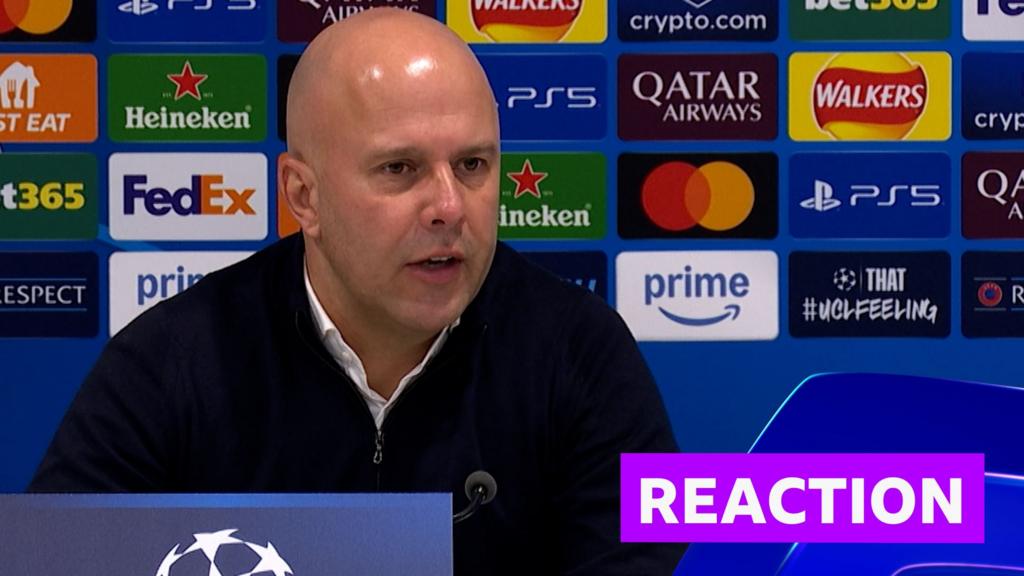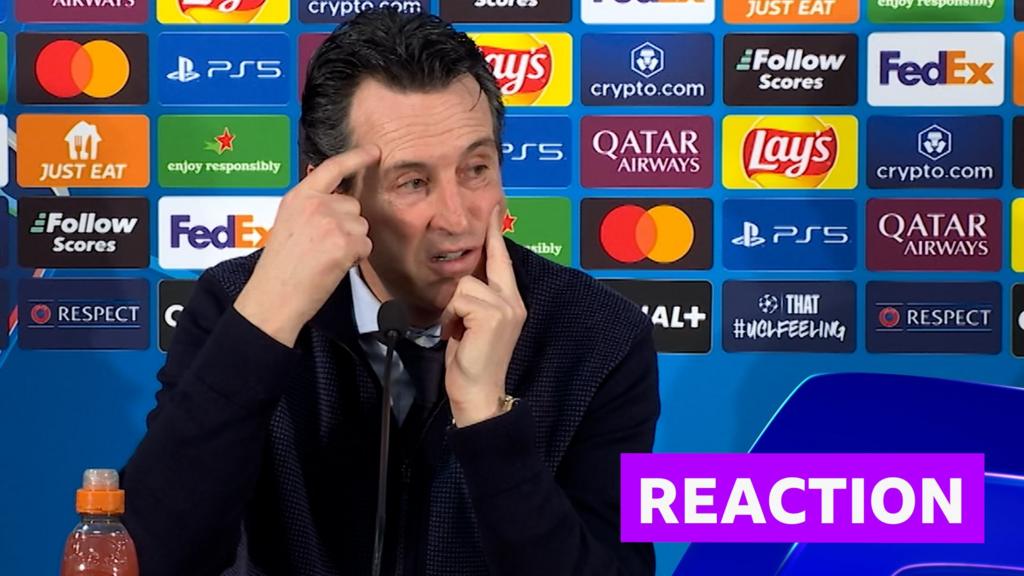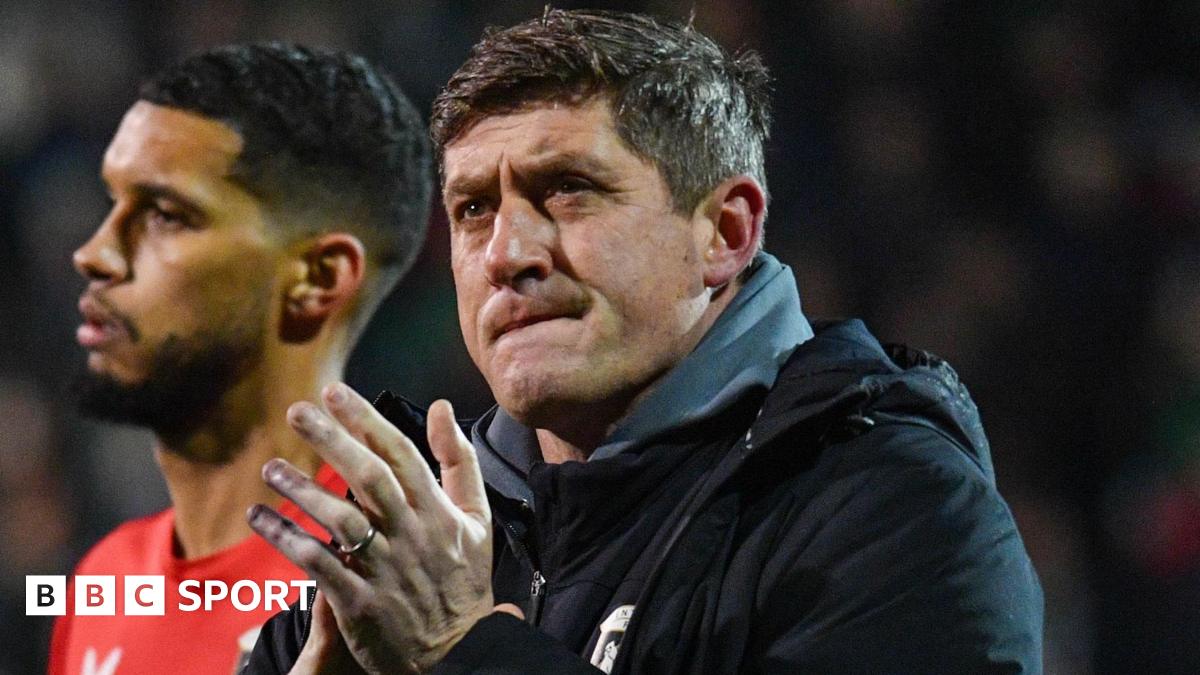ARTICLE AD BOX
Rasmus Hojlund was a teenager struggling to make a real impact at boyhood club Copenhagen when the 18-year-old came to Sturm Graz's attention.
The Austrian outfit were scouting for a striker and found Copenhagen willing to part with a player who, despite making his debut aged 17, had only returned five goals in 32 games - all of them in the Europa Conference League.
"We searched for somebody with a lot of speed and depth in his game," sporting director Andreas Schicker tells BBC Sport. "We scouted Rasmus really early and soon saw that he would fit perfectly in our game.
"Another very important part was that we checked on his character very early in that process, we had videocalls with him and his family and so on.
"His character and his mental strength were extremely impressive, especially for a player at his age."
Sturm snapped up the Denmark youth international in January 2022 for £1.6m, the most the club had ever spent on a teenager and a transfer met with some scepticism.
Hojlund duly delivered, scoring two goals on his debut, four in his first four games, and a total of 12 goals in 21 matches before Serie A side Atalanta bought the striker for almost 10 times what Sturm paid seven months earlier.
"From his first day on in Graz he convinced us that we made the right decision in getting him and everybody saw that he was and is destined for higher duties in football," reflects Schicker.
Hojlund, of course, would spend one season in Italy before joining Manchester United in a £72m deal and is a fine example of the impressive recruitment model instigated since Schicker joined Sturm Graz in 2020.
But he is also just a small part of the story behind how Sturm ended the dominance of Red Bull Salzburg, a club who won 10 successive Austrian Bundesliga titles before Sturm's league and cup double last season and who have made 24 of the 25 most-expensive transfers in the league's history.
"I think in no other European league the financial gap between one club and the others is so big as in Austria," adds Schicker.
"Of course, Salzburg has Red Bull as a sponsor but also earned this with great work. But I think we showed in the last year what is possible also with lower means."
Sturm's Austrian Bundesliga title in May was their first in 13 years and they are back in the Champions League group phase this season for the first time since 2000-01, where they host Club Brugge on Wednesday.
It comes after the club made a conscious decision to follow a "new path" when they appointed Schicker in 2020.
"The idea was to have success on the pitch with a team that is built around a few more experienced leaders who are surrounded by young, talented players who we want to develop, who can get ready for the next step in their career at Sturm and who we can sell for profit," explains the 38-year-old, who himself turned down interest from clubs in Germany this summer.
"The key is to find the balance between having success, qualifying for European competitions on one hand and making profit on our talented players on the other hand."
In each of the past four seasons, Sturm have sold on one of their key assets for a healthy profit. Hojlund remains the record sale, but before him Kelvin Yeboah's 17 goals in 34 league games earned the forward a £5.4m move to Genoa.
The year after Hojlund's departure, Dutch striker Emanuel Emegha joined Ligue 1 side Strasbourg for £10.9m after one stellar season and last summer midfielder Alexander Prass swapped Austria for German top-flight side Hoffenheim for £8m.
That is pittance compared to rivals Salzburg, who have sold nine players for more than Sturm received for Hojlund, but has provided a sustainable model for the club to keep reinvesting in young talent.
This summer, they spent a club-record £4m on London-born Denmark Under-21 forward Mika Biereth from Arsenal, who scored nine goals on loan in the second half of last season to help Sturm clinch a league and cup double and has four in nine this term.
"One of our strengths is that when we scout a player, we have a really clear and defined profile for every single position that the player has to match in order to work out in our philosophy and style of football," says Schicker.
"That gives us an advantage in closing in on players who we are interested in, because the pool of possible targets narrows a lot."
Head coach Christian Ilzer is the man who has implemented that philosophy on the pitch, pushing his team to play "dominant, aggressive, attacking football" and looking to win the ball back quickly.
When he arrived in 2020, the goal was to bring down a "league giant" in Red Bull Salzburg.
"On the one hand it was teamwork, very good coordination between sporting director Andreas Schicker and myself," he says about the process.
"Of course, there was also a top coaching team behind it, a club that was behind it, that supported the ideas that we forged, that lived and breathed them.
"And of course it was important from the outset to ensure a great deal of clarity."
Ilzer's own career was cut short by repeated cruciate knee ligament injuries aged 17 and his journey from amateur coach to double-winning manager has been varied.
Competing in the Champions League is of course the highlight so far, but the 46-year-old is far from finished.
"I'm not yet at the end of my dreams, at the end of my development, which should always continue, but the journey is what fulfils me," he adds.
Likewise, Sturm may be back in Europe's elite competition but the journey does not end here or change the model that has so far proved successful.
"For us it was always 100% clear, that the Champions League will not change anything about the project we started here in Graz four years ago," adds Schicker.
"Of course, it's a dream come true for everybody at the club to play on the biggest stage in club football, but the money that comes with it doesn't change our approach to the transfer market.
"We still wanted to get young, talented players with a lot of potential to grow to the club instead of getting experienced players for the Champions League.
"We also want to invest in infrastructure, for example a second training ground for the club. For that, the Champions League earnings of course help a lot."

 3 months ago
17
3 months ago
17








 English (US) ·
English (US) ·